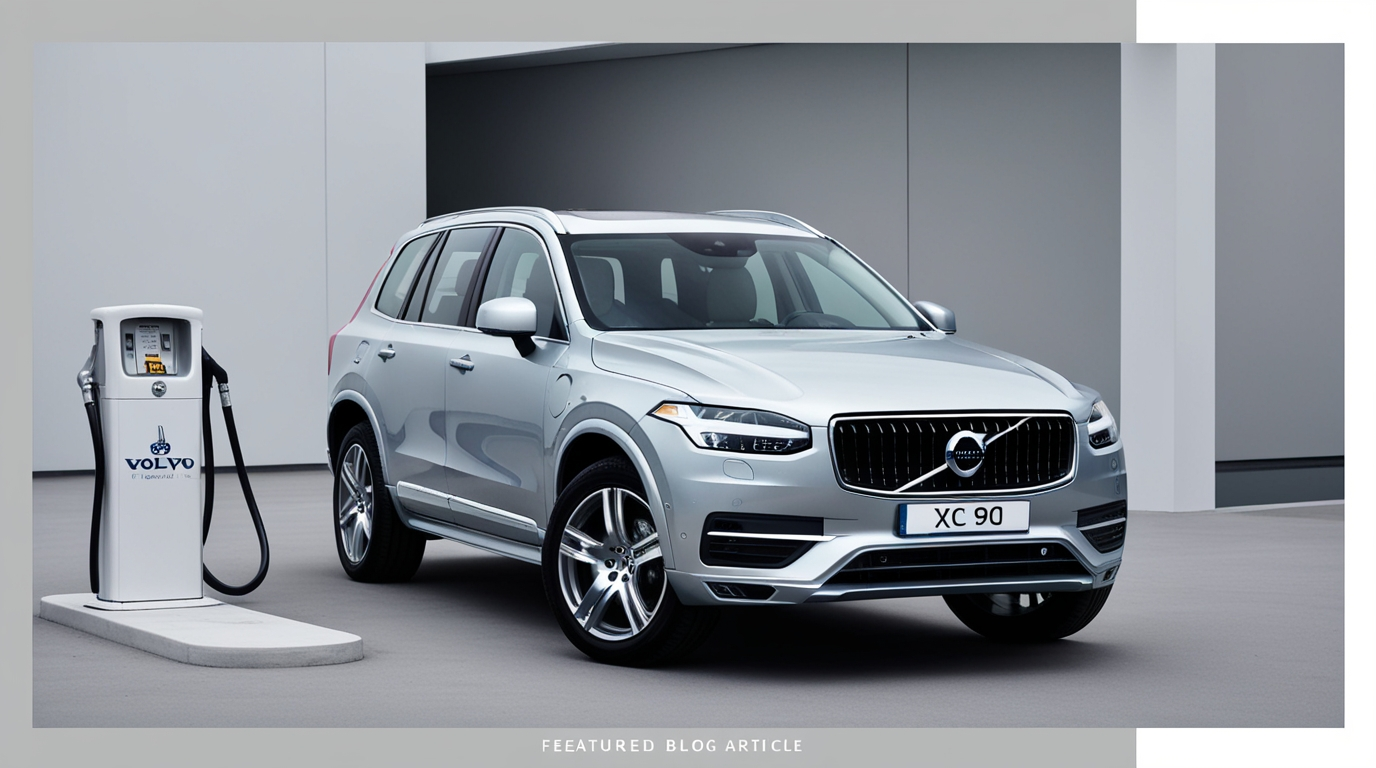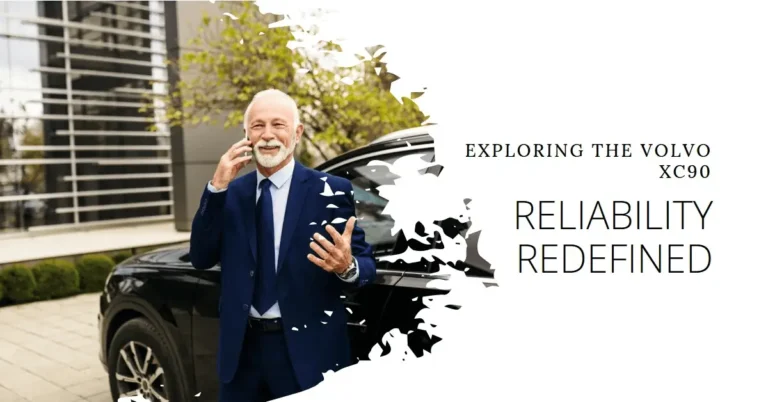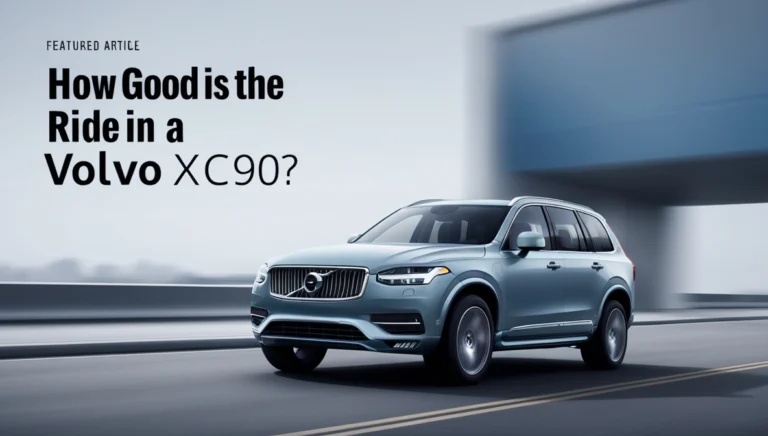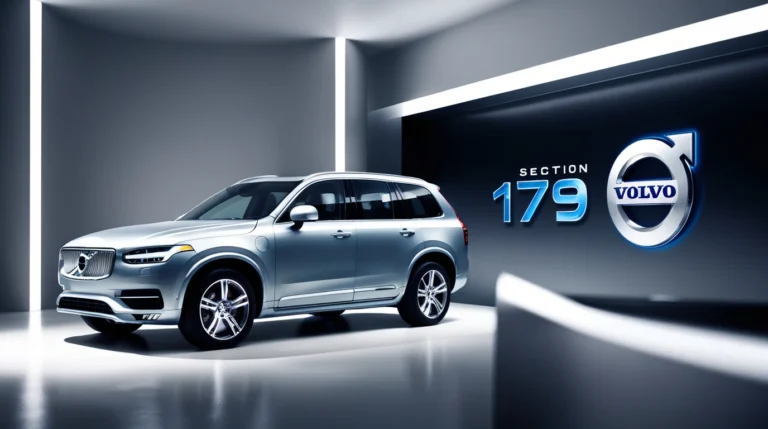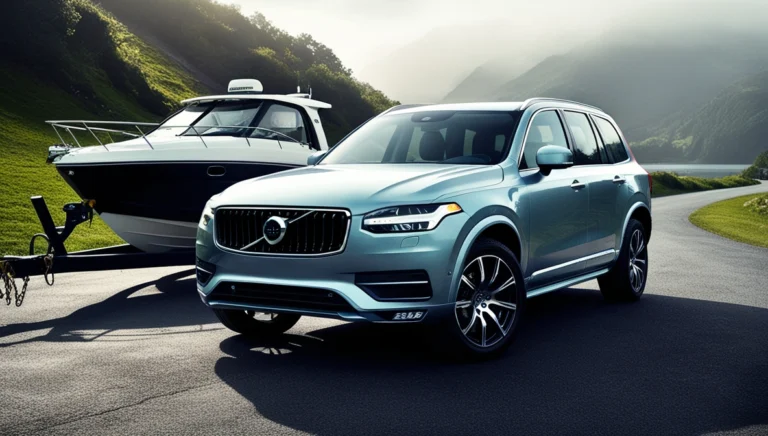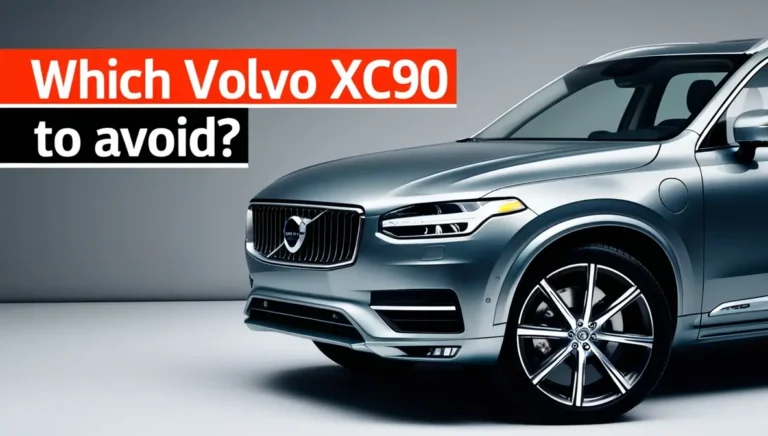Does Volvo XC90 Require Premium Gas?
Imagine cruising in your sleek Volvo XC90, the pinnacle of Swedish automotive engineering, when a crucial question strikes: What fuel truly powers this luxury SUV’s performance? Premium or regular—the decision isn’t just about filling up your tank, but protecting your investment and maximizing your vehicle’s potential.
Buckle up as we dive deep into the fuel mystery that every Volvo XC90 owner must understand, revealing insider tips that could save you money, protect your engine, and ensure your ride remains as smooth as Swedish design.
The short answer? It depends on which XC90 model you’re driving. Some XC90s are cool with regular gas, while others prefer to sip on the fancy stuff. But don’t worry; we won’t leave you hanging out with just that. We will break it all down so that even a 5th grader can understand it (no offense to 5th graders; you guys are pretty smart!).
Understanding the Volvo XC90 Engines
Before we get into the nitty-gritty of gas types, let’s talk about what’s under the hood of your XC90. It’s like choosing the right food for your pet – you must first know what animal you’re dealing with!
Overview of Engine Types
Volvo has a whole lineup of engines for the XC90, which is like flavors at an ice cream shop. You’ve got your T5, T6, and T8 engines. The T5 is like vanilla – simple and gets the job done. The T6 is more like a rocky road – a bit more complex with some extra oomph. And the T8? That’s the super deluxe sundae with all the toppings – a hybrid combining gasoline power with electric magic.
Now, here’s where it gets interesting. The engine type in your XC90 plays a big role in what kind of gas it likes to drink. It’s like how some people can handle spicy food, while others… well, let’s just say they might need to keep a fire extinguisher handy!
Turbocharged and Supercharged Engines
Let’s talk about the T6 engine for a second. This bad boy is what we call “twin-charged.” No, that doesn’t mean it has an evil twin. This means that it’s both turbocharged and supercharged. Fancy, right?
These high-performance engines are like star athletes – they perform best when given top-notch fuel. They love higher-octane gas because it helps them run smoother and faster. It’s like giving Usain Bolt a perfect pair of running shoes instead of flip-flops.
The Role of Hybrid Engines in Fuel Choice
If you’re rocking the T8 plug-in hybrid, you’re in a different ballgame. This engine is like having your cake and eating it, too – you get the power of gasoline plus the eco-friendliness of electricity. But don’t think this means you can slack off on your gas choices. The T8 still has a gasoline engine that needs to be treated right.
What Type of Gasoline Does the Volvo XC90 Use?
Alright, now we’re getting to the good stuff. What kind of juice does your XC90 need? Let’s break it down.
Octane Rating Recommendations
Okay, pop quiz time! Just kidding, I promised this would be easy to understand. When we talk about gas types, we’re talking about octane ratings. The higher the number, the fancier the gas.
For the T5 engine (remember, that’s our vanilla flavor), regular gas is perfectly fine. It’s like giving your car a nice, comfortable pair of sneakers. But premium gas might give you a tiny performance boost if you want to splurge. It’s like upgrading to those light-up sneakers – not necessary, but quite cool.
If you’ve got the T6 engine, Volvo recommends premium gas with 91 octane or higher. This is like giving your car a pair of top-of-the-line running shoes. It’ll help your engine perform at its best.
And for the T8 hybrid? Premium gas all the way, baby. This engine is like a professional athlete – it needs the good stuff to run smoothly and efficiently.
What Happens If You Use Regular Gas?
Now, I know what you’re thinking. “Can’t I just sneak some regular gas into my T6 or T8? They’ll never know!” Your car might not tell you, but it won’t be happy.
Using regular gas in these high-performance engines is like trying to run a marathon in flip-flops. Sure, you might finish, but you’re not going to perform your best, and you might end up with some blisters (in car terms, reduced performance, lower fuel economy, and maybe even some engine knocking).
What Is Premium Gas, and Why Is It Recommended for XC90?
Alright, let’s demystify this premium gas business. What makes it special, and why does Volvo insist on it for some XC90 models?
Benefits of Premium Gas
Premium gas is like the superfood of the fuel world. It has a higher octane rating, which means it can withstand more pressure before it ignites. This is a big deal for high-performance engines like the ones in the XC90.
Using premium gas is like giving your engine a spa day. It reduces the chances of engine knocking (about as pleasant as it sounds), burns cleaner (so your engine stays cleaner), and helps your turbocharged engine perform at its best.
Think of it this way: premium gas is like eating a balanced diet of fruits, veggies, and lean proteins. Regular gas is more like surviving on fast food. You might save some money in the short term, but your body (or, in this case, your engine) will thank you for choosing the healthier option.
The Impact of Using Lower-Octane Fuel
I’m not trying to scare you, but using lower-octane fuel in an engine that craves the premium stuff can have some not-so-great long-term effects. It’s like constantly feeding junk food to an athlete – eventually, it will catch up with them.
Over time, using regular gas in a premium-loving engine can lead to increased engine wear, lower fuel economy (so you might not even be saving money in the long run), and more frequent trips to the mechanic. And let’s be real, nobody wants to spend more time at the mechanic’s shop than they must!
Can You Use Regular Gas in a Volvo XC90?
Alright, let’s address the elephant in the room. Can you use regular gas in your fancy-pants Volvo XC90?
Is It Safe?
Here’s the deal: if you’ve got the T5 engine, you’re in the clear. Regular gas is safe, and your car won’t throw a tantrum if that’s what you give it. It’s like feeding your dog regular kibble instead of the gourmet stuff – it’ll do the job just fine.
But for the T6 and T8? Well, it won’t make your car explode or anything dramatic like that. But it’s like trying to feed a racehorse a diet of hamburgers. Sure, it’ll run, but it’s not going to win any races, and it might start feeling a bit sluggish after a while.
Differences in Performance with Regular vs Premium Gas
Some might think, “How much difference can it make?” Well, let me tell you, the car nerds of the internet have been debating this for years.
Some XC90 owners swear they can feel the difference when they switch from premium to regular. They report things like decreased acceleration, lower fuel economy, and even a slight change in how the engine sounds. It’s like the car equivalent of having a scratchy throat.
Others say they barely notice a difference. But here’s the thing – even if you can’t feel it right away, using the wrong fuel over a long period can have effects that creep up on you, kind of like that sunburn you didn’t realize you were getting until it was too late.
Understanding Fuel Economy in the Volvo XC90
Let’s talk dollars and cents for a minute. After all, one of the main reasons people consider using regular gas is to save some cash. But does it work out that way?
MPG Variations Based on Fuel Type
Here’s where things get interesting. Some XC90 owners have reported getting better fuel economy when using premium gas. It’s like the car is saying, “Thanks for the good stuff! Here’s a little bonus mileage for you.”
The difference might not be huge – we’re talking maybe 1-2 miles per gallon. But over time, that can add up. It’s like finding an extra dollar in your pocket every time you do laundry – small but nice!
How Premium Gas Affects Long-Term Engine Health
Think of premium gas as a multivitamin for your engine. You might not see the effects immediately, but it can make a big difference over time.
Using premium gas can help keep your engine cleaner, reduce carbon deposits, and keep that turbo system humming nicely. It’s like flossing – not the most exciting thing, but your future self will thank you.
The Importance of Using Top-Tier Gasoline
Okay, now we’re getting into the nerdy stuff. But stick with me, because this is important!
What Is Top Tier Gas?
Top Tier gas is like the overachiever of the fuel world. It’s gas that goes above and beyond the minimum detergent standards the government sets. It has extra cleaning agents that help keep your engine sparkling clean inside.
Think of it like this: regular gas is like washing your hands with water. Top Tier gas is like using soap and scrubbing for 20 seconds. Both will clean your hands, but one does a much better job.
Volvo’s Recommendation for Top-Tier Gas
Volvo doesn’t just suggest using premium gas – they specifically recommend using top-tier gas. They say, “If you’re going to treat our engines right, go all the way!”
Tier gas can help prevent deposit buildup in your engine, leading to better performance and fuel economy. It’s like giving your car a mini spa treatment every time you fill up.
So there you have it, folks! The lowdown on whether your Volvo XC90 needs premium gas. While saving a few bucks at the pump might be tempting, your high-performance Swedish chariot will perform its best when you give it the good stuff.
Don’t just take my word for it. Next time you’re at the dealership, ask the Volvo folks themselves. They know these cars inside and out and can give you the scoop straight from the horse’s mouth.
And remember, whether you’re feeding your XC90 premium or regular, the most important thing is that you’re enjoying the ride. After all, life’s too short to drive boring cars!

